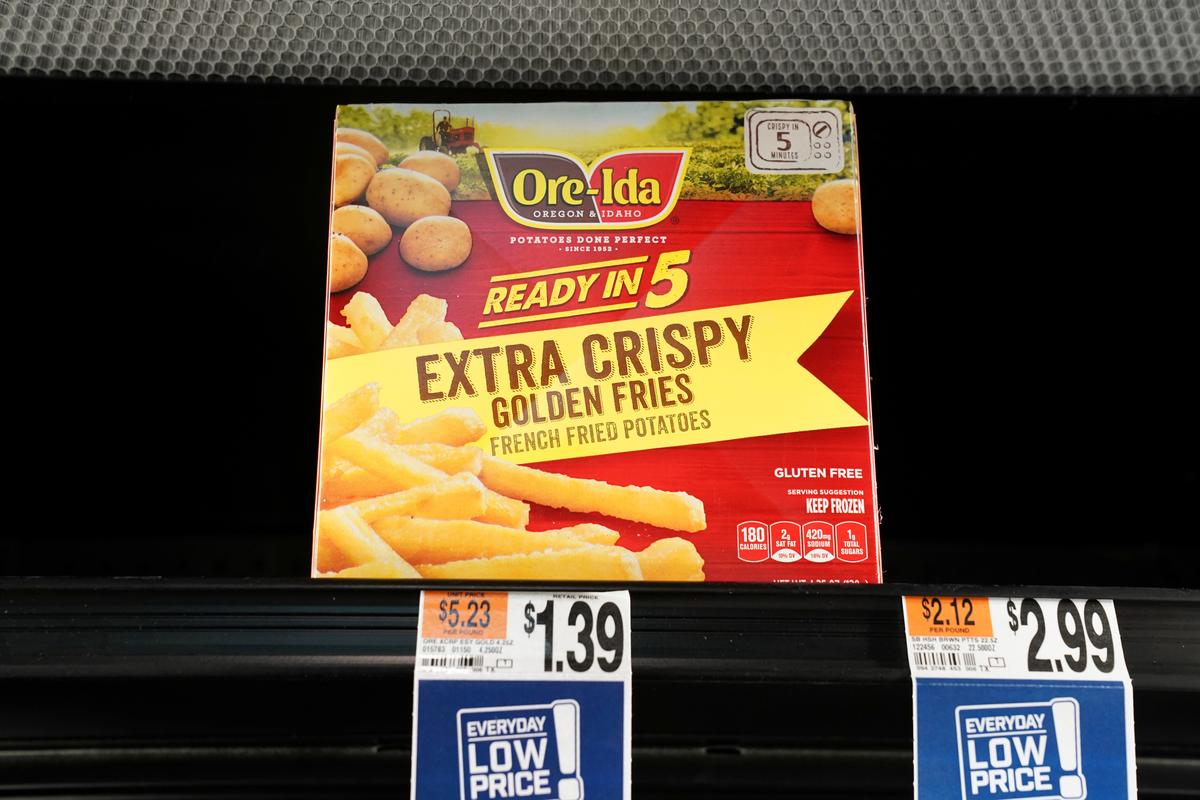(Reuters) – Shopper Lexie Mayewski is having a hard time finding frozen french fries in Washington, D.C.-area supermarkets in the wake of coronavirus-fueled stockpiling.
A lone box of frozen french fries is all that remains in a nearly empty section of a freezer case at a Giant supermarket in Falls Church, Virginia, U.S., April 23, 2020. REUTERS/Kevin Lamarque
On the other side of the country, Washington state farmer Mike Pink is weighing whether to plow under 30 tons of potatoes worth millions of dollars that would have been turned into french fries for fast-food chains like McDonald’s Corp, Wendy’s Co and Chick-fil-A.
Their incongruent experiences underscore how America’s highly specialized and inflexible retail and foodservice supply chains are contributing to food shortages and waste in the wake of demand disruptions from the COVID-19 pandemic.
Frozen french fry sales at grocery stores spiked 78.6% for the four-week period ended April 4, according to Nielsen data, resulting in shortages at many U.S. supermarkets.
Mayewski, 25, a construction manager, has not seen frozen fries at the Giant Food or Safeway supermarkets near her Maryland home.
“There’s not a single french fry to be found,” said Mayewski, whose supply of frozen shoestring and waffle fries was running low.
Frozen fries are an ideal pandemic staple – offering comfo

